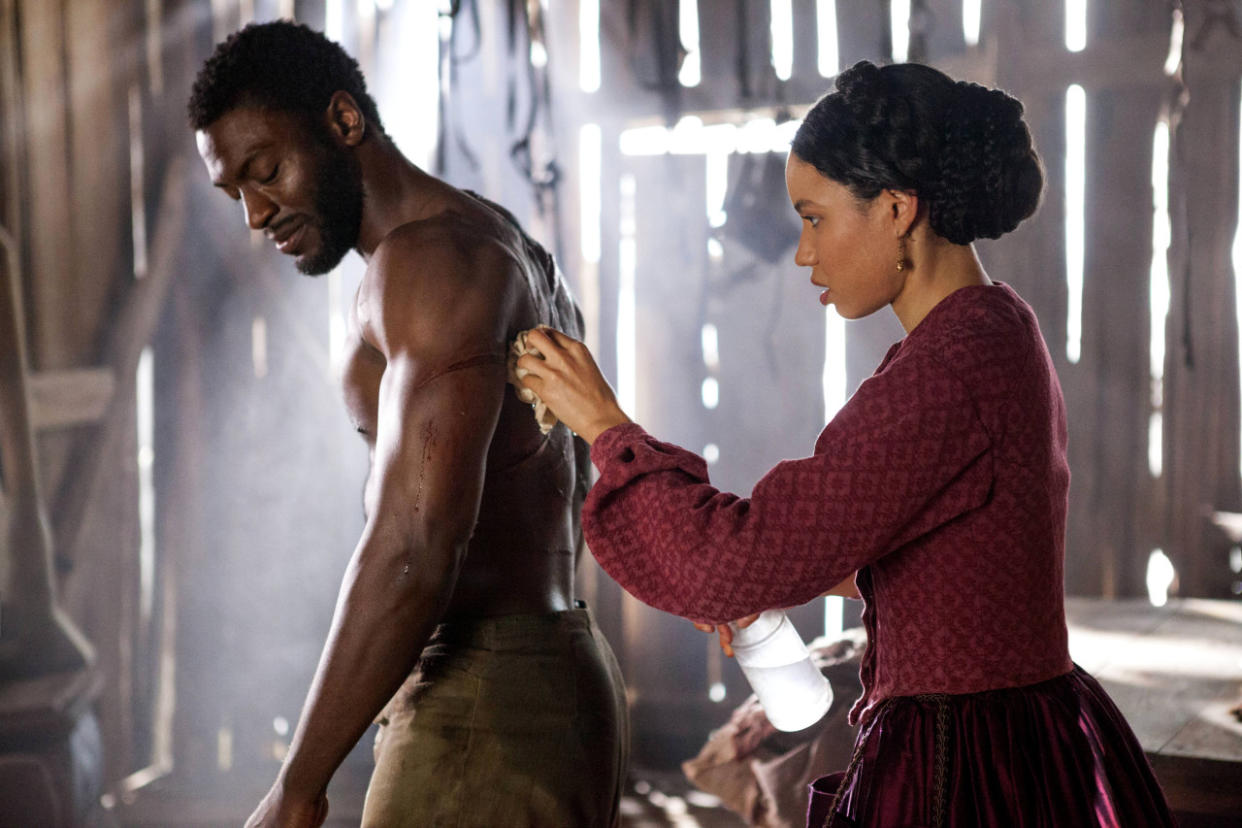‘Underground’: A Vivid Saga of Slavery and Escape

A big-canvas portrait of slavery marked by moments of jolting energy, Underground is a skillfully agonizing new series about Civil War-era slavery and the underground railroad. Premiering on Wednesday night, it’s another solid achievement for WGN America, which is trying to establish itself as a destination channel for quality programming, following the artistic success of its atomic-bomb drama Manhattan.
In Underground, a group of slaves plots an escape from a Georgia plantation. The show does a good job of quickly sketching in the lives of slaves who labor both inside and outside the mansion overseen by the loftily cruel owner Tom Macon, played by Reed Diamond.
In its initial hours, much of the drama is centered around Noah (Straight Outta Compton’s Aldis Hodge), a slave who yearns for freedom with a passion that pegs him as a disruptive force, and Rosalee (Friday Night Lights’s Jurnee Smollett-Bell), a more quiet but just as rebellious slave whose work attending to the pampered white women on the house gives her access to information useful in a budding rebellion.
The first episode is titled “The Macon 7,” and establishes the series’ opening plot: a band of seven disparate slaves, each with his or her own unique set of skills, organize to effect an escape via the underground railroad, on a route to legalized freedom. Underground as created by Misha Green and Joe Pokaski borrows a bit of its structure from a movie like the World War II adventure film The Great Escape, which had an assorted group of protagonists united by a common goal.
Underground doesn’t shy away from depicting the obscene violence and degradation of slavery life. At its best, the show does a good job of portraying each slave as an individual with his or her own strengths and flaws, while, on the other side, the whites are also placed in the social context of the times, their often casual brutality all the more chilling when viewed as being part of “just the way life was” during this period. The writers locate at least one white character for whom the audience might have guarded admiration, a lawyer seeking to help underground escape played by Buffy the Vampire Slayer’s Marc Blucas, but he is never shown to be a more prominent figure in this production than those people who are kept in bondage.
There are some jarring touches in Underground. One of them is good: the use of contemporary music by artists such as Kanye West to underscore bristling discontent. But another contemporary trope occasionally takes a viewer out of the drama, as when one character or another sometimes uses phrases that no 19th-century person would have uttered, such as “We could make a real difference!” and “I can’t seem to get out of my own head,” or when Roslaee tries to excuse the antic behavior of a disruptive black child to her master as the result of feeding the kid too much sugar — I don’t think sugar-rushes were a widely-known big problem in the Old South.
Some will inevitably ask whether we “need” another slavery drama, a subject television has excelled at presenting, starting with the first of the hugely popular ones: Roots, in 1977. I guess I subscribe to the idea that you cannot tell this story often enough, as long as there is an audience that will be moved by it. The only failure is when it is dull art or tedious entertainment, and Underground mostly avoids those pitfalls.
Exec Producer John Legend talks to Jimmy Kimmel about Underground:
Underground airs Wednesday nights at 10 p.m. on WGN America.
